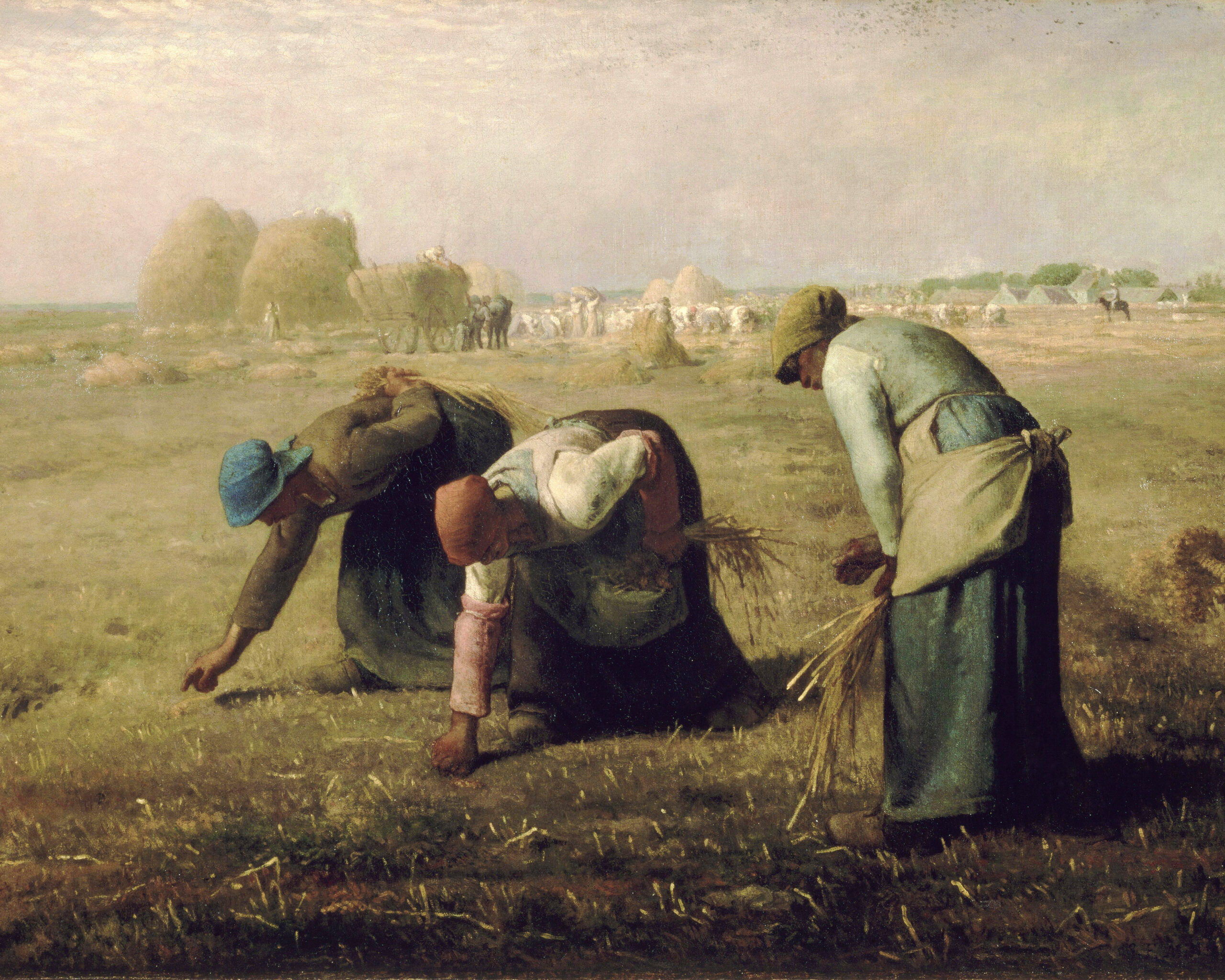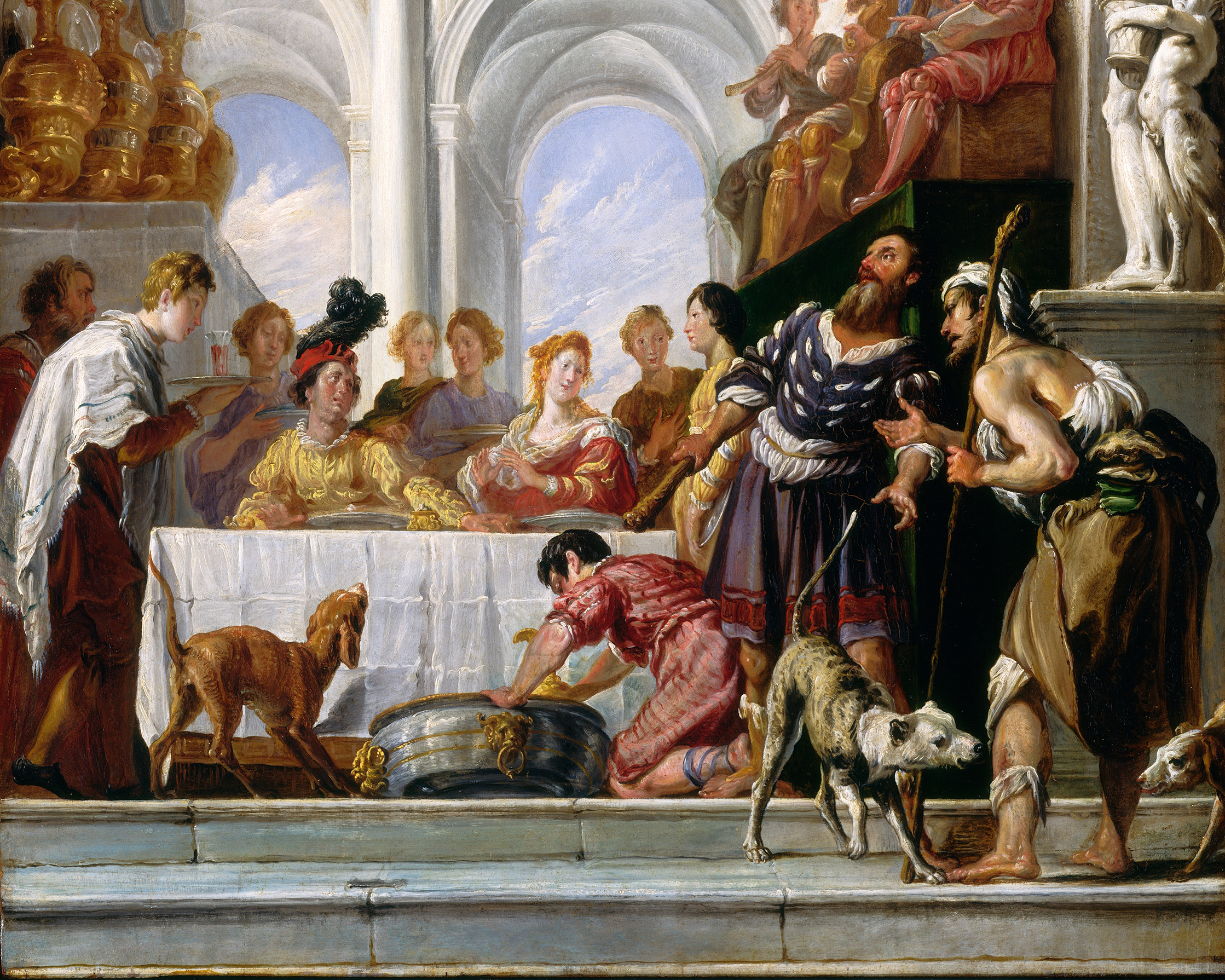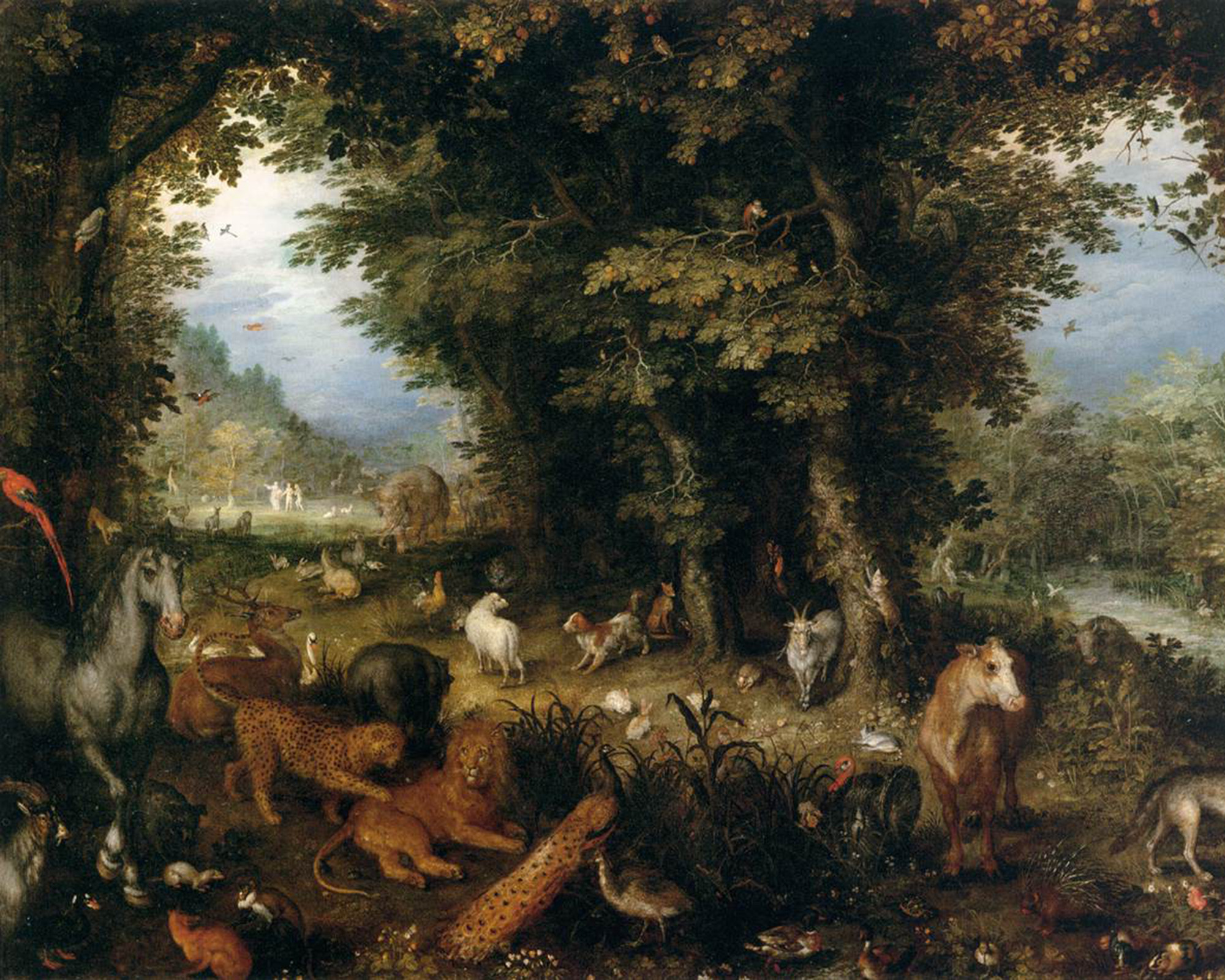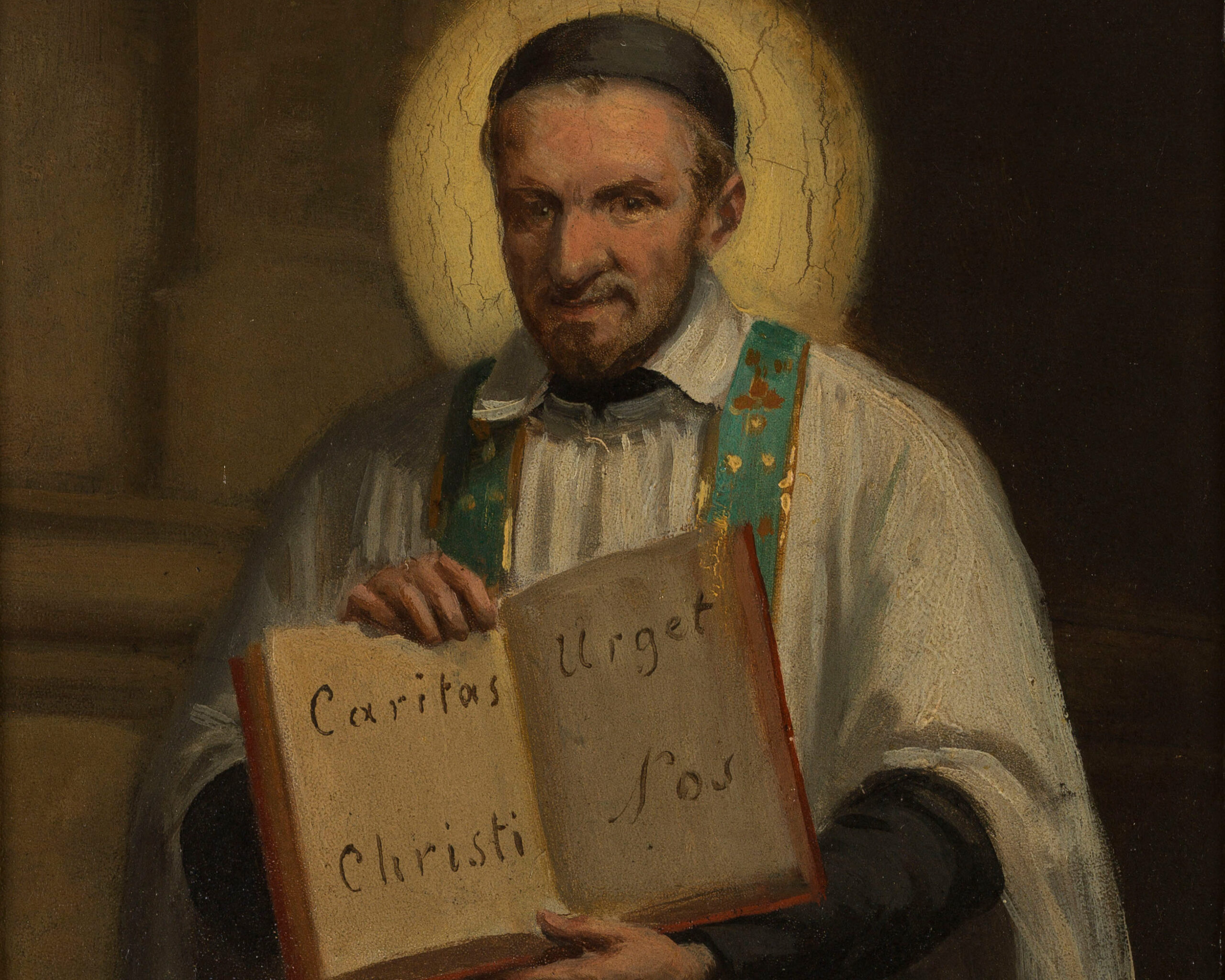“I show you a more excellent way.”
-1 Corinthians 12:31
It will conduce much to our spiritual advancement that we propose to ourselves as objects the highest things and such as are of the greatest perfection, according to the counsel of the Apostle: “Be zealous for the better gifts. And I yet show to you a more excellent way.”
This means is without doubt of great importance; for our desires must necessarily soar high if we wish to elevate our actions to that perfection with which even our indispensable duties should be performed.
This may be easily explained by a familiar comparison: When your bow is too feebly bent, you will never be able to hit the mark unless you aim considerably higher; because the looseness of the string gives to the arrow a downward direction.
It is precisely so with us. Our nature is so feeble and we are so relaxed by the evil habits we have contracted that we must take our aim considerably higher than the mark if we wish to reach it.
Man is become so weak by sin, that to attain an ordinary degree of virtue, his thoughts and desires must soar much higher.
But some will say, “All I propose is to avoid mortal sin; this is the only perfection I aspire to.”
It is much to be feared that you will not reach this point you propose to yourself, for the string of your bow is slack.
Perhaps you would have reached this point had you directed your thoughts higher, but not having done so, it is probable you will never reach it, but that you will fall into mortal sin.
St. Jerome, explaining these words of the Psalmist – “Blessed is the man, O Lord, whose help is from Thee; in his heart he hath disposed to ascend by steps” (Psalm 83:6) – says, the just man’s heart is always towering aloft, and the sinner’s heart is perpetually sinking.
The just man has his eyes continually raised to the things most sublime in virtue; he aspires to increase in perfection; it is this which he has perpetually in his mind, according to the saying of the Wise Man: “The thoughts of the industrious always bring forth abundance” (Prov. 21:5).
But no thought is less present to the mind of the sinner than this; he is content to live like the rest of the world; at the utmost, he proposes to himself but an ordinary degree of virtue; he grows tepid, his spirits sink and he attains not his object.
This, says Gerson, is the language used by many:
“It is enough for me to live as people in general live; I desire only to be saved; the sovereign degree of perfection and glory I leave to the Apostles and martyrs; I do not pretend to soar so high, but I am content to walk upon the plain ground.”
Such is the language of sinners and imperfect men, who in number far exceed the just and perfect. “For many are called,” says our Savior, “but few are chosen” (Matt. 20:16).
And “wide is the gate and broad is the way that leadeth to destruction, and many there are who enter by it. How narrow is the gate and strait is the way which leadeth to life, and few there are who find it” (Matt. 7:13).
St. Austin, speaking of such as walk on the broad beaten way of a loose life, says that those are the men whom the prophet calls “beasts of the field” (Ps. 8:8) because they always range in a spacious place, and will not be confined by rule or discipline.
And Gerson says that by this kind of language – “It is enough for me to live as others so: if I bet but saved it is sufficient. I aspire to no greater perfection” – a man readily manifests the imperfect and bad state of his own heart, since he is not willing to enter by the narrow gate.
He adds, moreover, that persons who, through sloth and tepidity, think it sufficient to obtain the lowest seat in Heaven have great reason to fear that they will be condemned with the foolish virgins who fell asleep without having made any provision, or with the negligent servant who buried the talent he had received and took no pains to improve it.
He was cast into exterior darkness, and yet we read not in the Gospel that he was condemned for anything else than for having neglected the talent his master had entrusted him with.
But to show still more clearly the shameful and deplorable state of these men, Gerson gives this example. Imagine to yourself, says he, the father of a family, rich and noble, having many children, all of whom are capable of advancing the interest and honor of the family by their good qualities.
All apply with zeal to the performance of their respective duties except one, who, through sloth, leads a loose and shameful life, though, provided he did but apply himself, he is as well qualified as the rest for performing virtuous actions.
Still he does nothing worthy of his birth and talents, but contents himself, as he says, with a small fortune; and since he has the wherewithal to live at ease, he will take no pains to increase his property, nor will he entertain any honorable ambition.
His father calls upon him, exhorts and entreats him to adopt more noble sentiments, reminds him of his good qualities and noble birth, proposes to him the example of his ancestors and of the rest of his brothers.
But when he sees that, notwithstanding all he does, he cannot prevail on him to rise out of his sloth and to lead an active life, he must needs conceive against him a very just indignation.
It is the same with God. We all are His children and brothers of Jesus Christ. He would not have us content ourselves with an idle life, but exhorts us to perfection in these words, “Be you therefore perfect, as also your heavenly Father is perfect” (Matt. 5:48).
Consider how holy and perfect He is; think on what your birth obliges you to and endeavor to show by your actions that you are the true children of such a Father; take example from your bothers also, and if you will, look upon your eldest brother, Jesus Christ, who most freely gave His Blood and life to repair the losses of our race and to restore it to its former splendor.
But if so great an example dazzles you, look upon your other brothers as weak as yourself, like you born in sin and subject to like passions, temptations and evil inclinations.
They fought against them unremittingly; they conquered and gained the crown of glory; and our holy mother the Church sets before us their example and celebrates their feasts, in order to encourage us to imitate them.
This article is taken from a chapter in The Soul Sanctified which is available from TAN Books.









